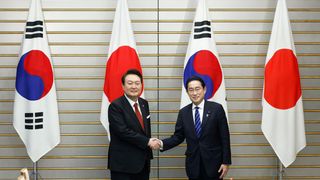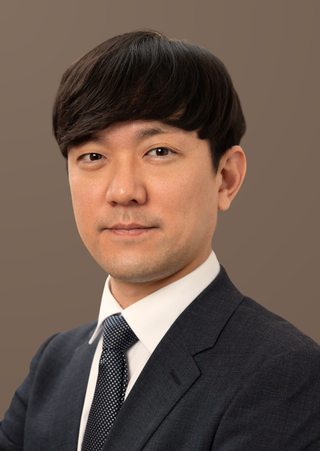The recent attendance of senior Russian and Chinese officials at North Korea’s July anniversary to celebrate its “victory” in the Korean War is a reminder of the shared challenges facing Seoul, Tokyo and Washington. The US-Korea-Japan leaders' summit at Camp David is an important milestone in strengthening US alliances in the Indo-Pacific and strengthening trilateral deterrence.
We are seeing an unprecedented degree of alignment among US allies. This has taken multiple forms, from repairing and empowering US alliances to new minilateral efforts such as the AUKUS partnership and the ‘Indo-Pacific 4’ dialogue of Australia, New Zealand, South Korea and Japan as NATO partners. Closer cooperation among US allies is also extending across issues, encompassing not just defence and foreign policy, but also trade, manufacturing, advanced technologies, and clean energy.
South Korean President Yoon Suk Yeol and Japanese Prime Minister Kishida Fumio have expended significant political capital over the past year trying to resolve serious disputes over historical redress, judicial rulings and export controls. The Biden administration has sought to encourage these efforts wherever possible, including the ambitious Phnom Penh trilateral leaders’ statement. But the initiative has really come from Seoul and Tokyo, exemplified by President Yoon’s dramatic visit to Tokyo in March and Prime Minister Kishida’s return visit to Seoul in May. In addition to meetings at G7 and NATO summits in recent months and reportedly 40 trilateral meetings over the past year by officials, the Camp David summit should be seen as the culmination of an intense diplomatic effort.
The trilateral summit matters for Australia because our relationships with each of these countries has never been stronger or more important. Last month we held our AUSMIN talks, and Australia and Japan recently brought into effect a landmark visiting forces agreement. In addition, the Albanese government selected a South Korean firm to deliver Army’s new infantry fighting vehicles in Australia’s first ever defence contract with an Asian country while South Korea sent over 700 ROK troops and some of the biggest ships in the ROK Navy to participate in the recent Talisman Sabre military exercises in Australia.
Trilateral US-Korea-Japan cooperation is primarily focused on responding to the threat of North Korea’s illegal and dangerous missile tests and development of tactical nuclear weapons, but it also serves broader strategic purposes. Just as the AUKUS partnership is both a long-term shipbuilding effort but also an immediate signal of collective resolve, the US-ROK-Japan leaders’ summit should be viewed as strengthening trilateral deterrence against North Korea but also as contributing to the long-term balance of power in East Asia.






